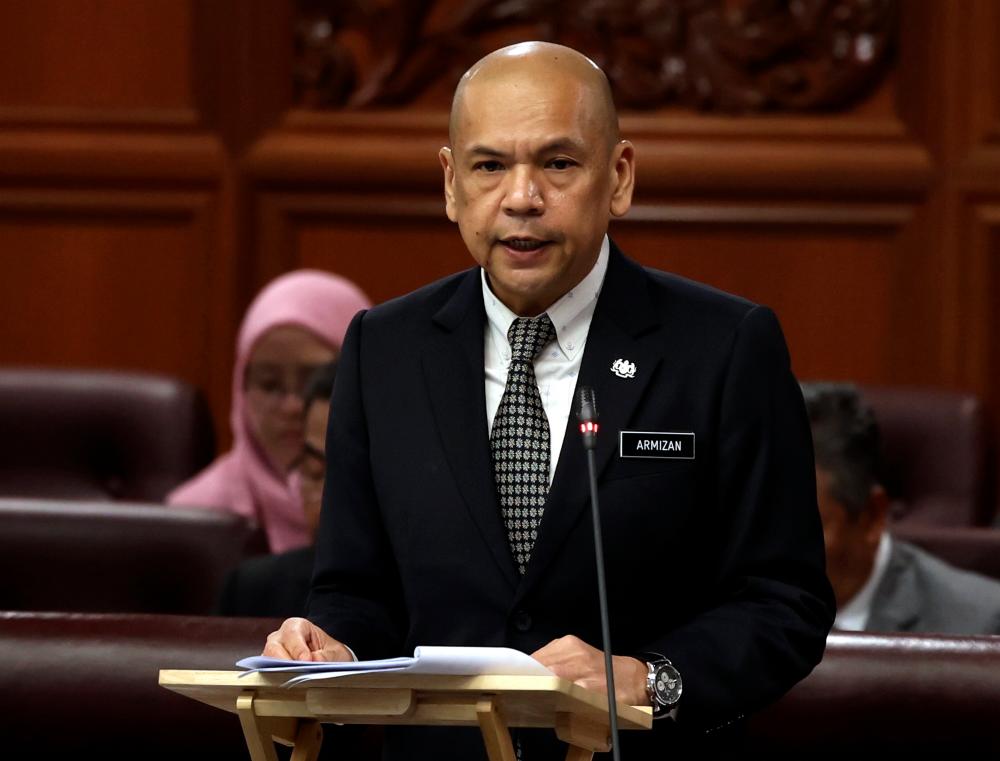KUALA LUMPUR: Datuk Armizan Mohd Ali, who was appointed Minister of Domestic Trade and Cost of Living (KPDN), today, expressed his pride in the commitment and legacy of outstanding leadership left behind by the late Datuk Seri Salahuddin Ayub (pix).
Armizan was formerly the Minister in the Prime Minister’s Department in charge of Sabah and Sarawak Affairs, and took on the Domestic Trade and Cost of Living portfolio as acting minister, following the death of Salahuddin in July.
He conveyed this when winding up the debate on the Supply Bill 2024 for his new ministry, at the Dewan Negara today.
“I would like to take this opportunity on behalf of the entire KPDN family to express our highest appreciation for the services and contributions of the late KPDN Minister, Datuk Seri Salahuddin Ayub.
“Throughout the time he held this office, to be honest, I have witnessed his dedication and hard work, as well as his legacy of outstanding leadership in KPDN,” he said.
Armizan also said that the current agenda and focus of the government is Budget 2024, themed ‘Economic Reforms, Empowering the People’, which must be implemented considering the current demands and realities.
“The Upper House must accept the fact and the reality that the global economy, particularly the issue of the cost of living, is a crucial backdrop that we cannot ignore.
“Based on recent studies on the cost of living issue, the Global Risk Report 2023, by the World Economic Forum, has identified the cost of living as a key risk for the next one to two years, surpassing other risks, including disaster risks.
Meanwhile, Armizan also highlighted the successful implementation of the Rahmah Sale Programme (PJR), since April, which has seen significant participation from supermarkets, retailers, suppliers and wholesalers.
“Since the launch of the PJR, the ministry had set a target to roll it out across the country, in 222 parliamentary constituencies and 640 state constituencies. As of Dec 11, the Rahmah Sales have recorded more than 5.6 million visitors across 4,234 locations.
On the assurance that there will be no price hikes next year, Armizan said that it was inappropriate for the government to promise something entirely beyond its control, especially when Malaysia’s economic system adopts a free-market economy.
“In addition, the government’s main instrument at the moment is providing subsidies in bulk or in the form of cash assistance.
“Strategies and mechanisms which have been, and are being, implemented are subsidies on fuel, diesel, liquified petroleum gas (LPG) and packaged palm oil, rebates on electricity bills and the Payung Rahmah initiative,” he said. -Bernama









